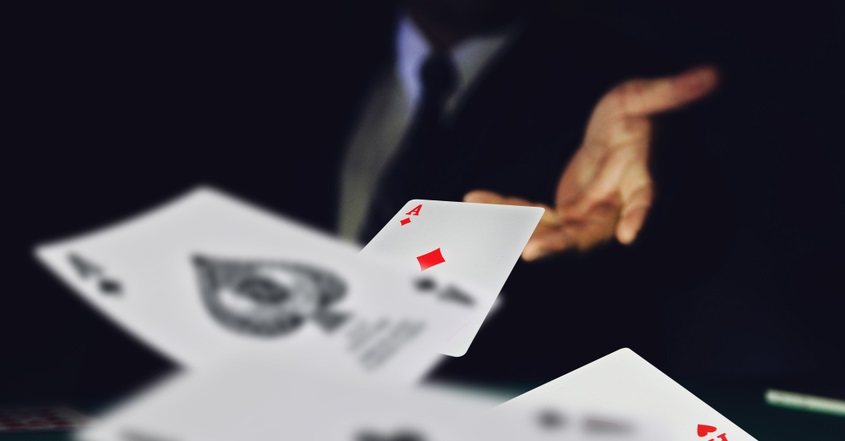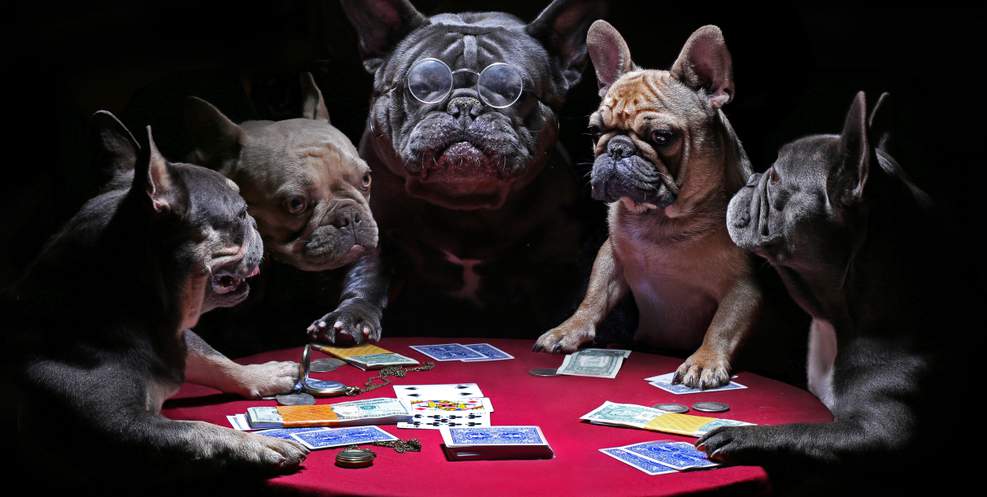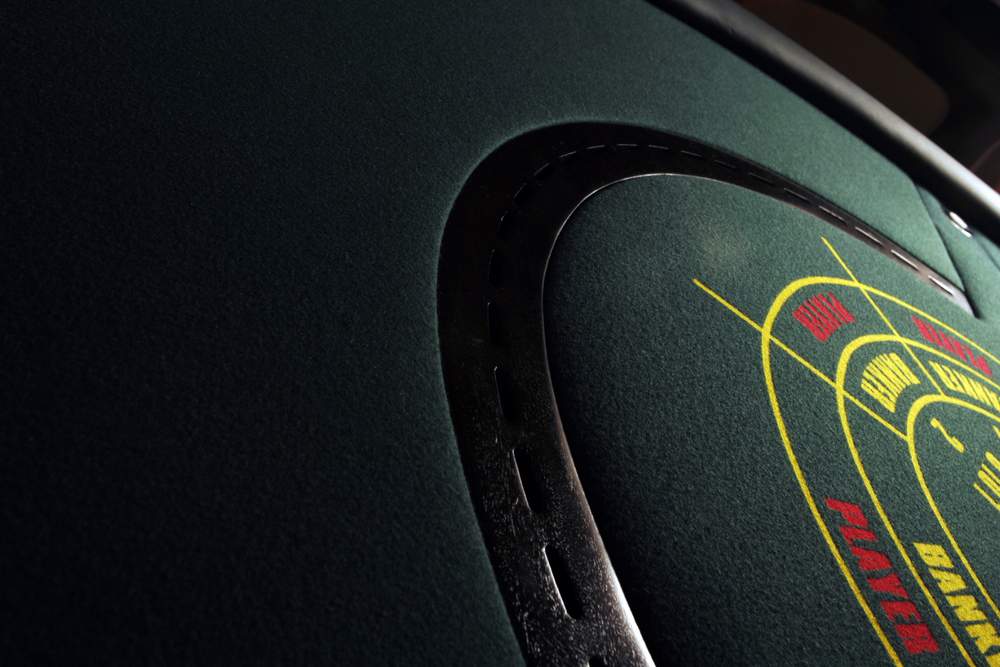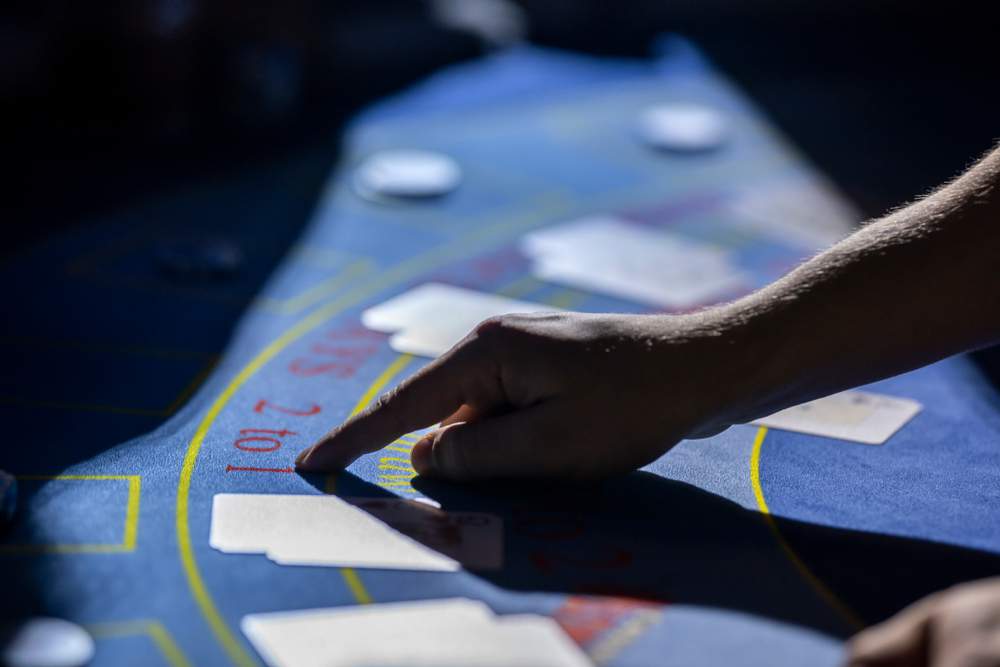

Looking to brush up on your knowledge of poker terms?
You’re in the right place, welcome to the ultimate guide to poker terms where we’ll cover everything from “action and ante” to “top pair” and “under the gun”.
Sit back and relax, maybe crack out your notepad, it’s time to learn your lingo.
Action
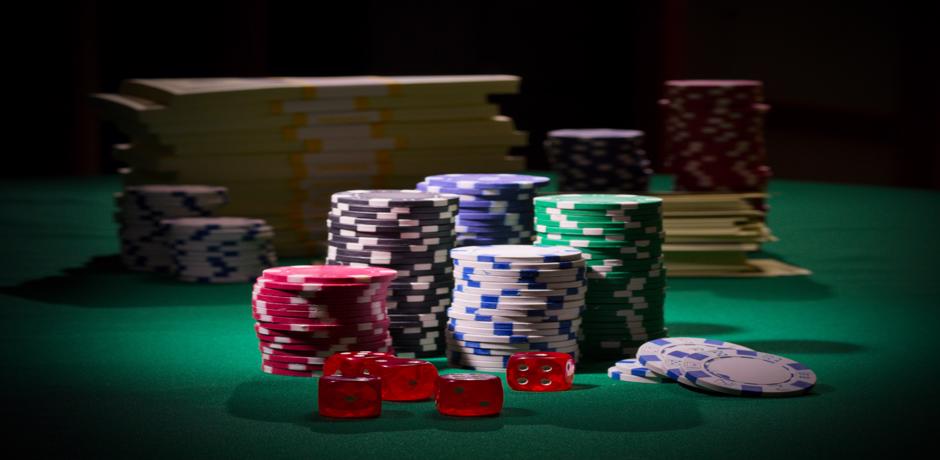
A term that can be given three different meanings:
- One’s turn to act during the current hand
- The act of betting or raising
- The term given to a game with lots of betting and raising (a lot of action)
Ante
The small bet required by all players before a hand can be dealt with, giving the pot value before play begins.
An ante, although similar to blind, differs as everyone must contribute before play can continue.
All-in
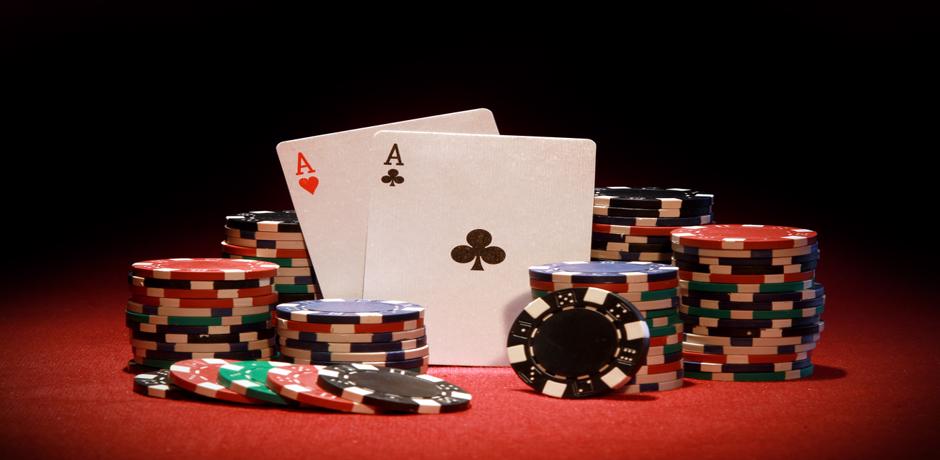
A bet in which all of a player’s chips are placed into the pot.
Backdoor
The term given to a player hitting their required cards on the turn and river to build the hand required.
For example, is there’s a single heart on the flop and a pair of hearts possessed by the player, they would require a heart on the turn and another on the river for a “backdoor” flush.
Bad beat
When a player who originally had the statistical lead over another player is beaten by that same opponent following the flop, turn, or river.
“I totally had you, that was a bad beat!”
Bad beat story
When a player still isn’t quite over that last bad beat and continues telling the story for the years that follow.
You’ll usually know the end of the story word-for-word by now, but still have to act surprised when you hear “and then the river card was an 8, can you believe it!?”
Big blind
The value of chips that the second player to the left of the dealer is required to bet.
The amount that the big blind is set to rely on the stakes and, similar to an ante, gives value to the pot before the hand begins. The big blind is equivalent to a complete first-round bet, named a blind due to the amounts placed without seeing the cards (betting blind).
Blind
The generic term that follows “small” or “big”.
If you are in one of the two blind positions you will be seated either immediately to the left of the dealer button (for a small blind) or one position further to the left (for a big blind). The blinds add value to the pot before play commences.
Board
The board is the term given to the community cards found in the center of the table that allows players to use alongside their pocket cards to build the best hand.
Bubble
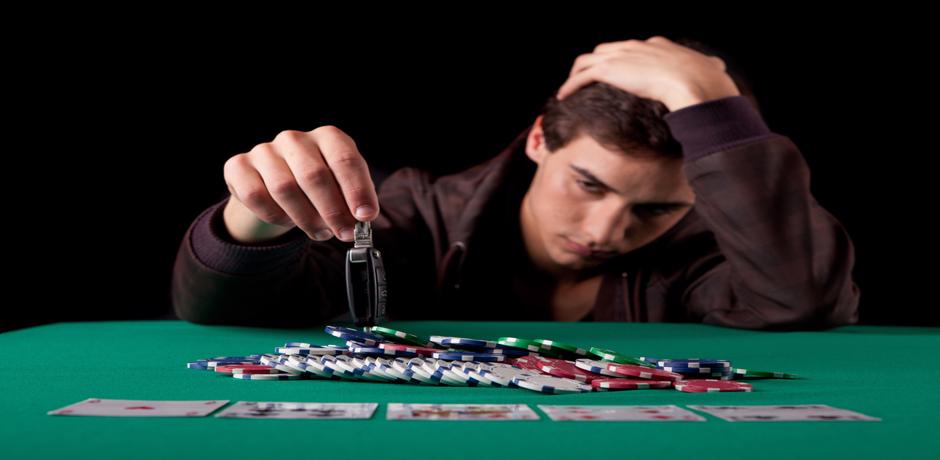
The bubble is the name given to the top finisher in a tournament that lands out of the money.
For example, in a tournament of 500 players where only the top 15 are to be paid, the 16th position is known as “the bubble”. It is perhaps the worst place to finish in a tournament.
Burn
The discarding of the top card before each of the betting rounds, the card that is discarded is known as the “burn card”.
If a distinguishing mark on the top of the card is discovered, the burn card conceals the information, preventing unfair information from being passed on.
Button
The term given to the position of the dealer.
When discussing live poker, the dealer is noted with a plastic disc known as a dealer button, that is placed in front of the correct player. The position of the dealer rotates clockwise at a rate of one player following each shuffle for a new hand.
The button is advantageous for those acting last during a betting round.
Buy-in
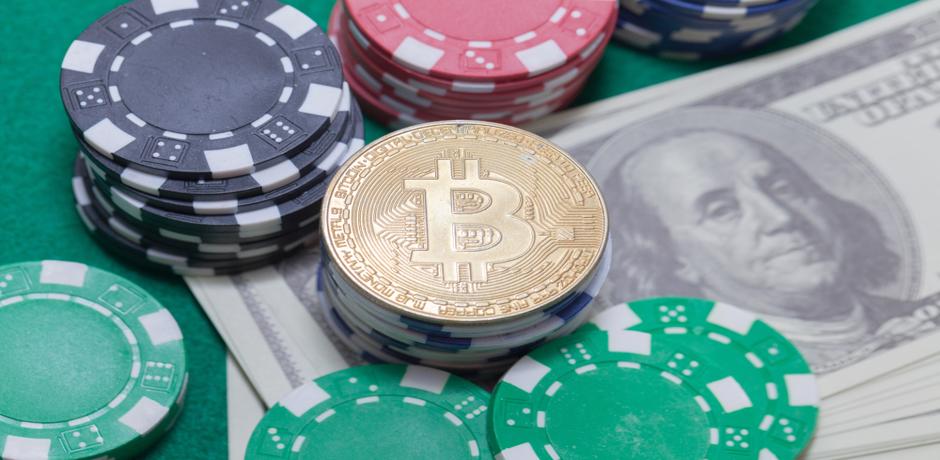
The term given to the cost of tournament entry or the minimum amount required to be seated in a cash game (table dependent).
The buy-in is usually 20 times the big blind, giving a healthy bankroll for play at the table. For example, if the big blind is $10, the buy-in will often be $200 before a seat can be taken.
Call
To contribute the minimum value of chips to the pot to continue playing a hand.
Check
To pass on betting entirely.
If there is no current action (bet) to you, there’s nothing to call and so the two options available will be to bet or to check. If a player does not want to bet, they can check.
If there is action following a player’s “check”, the action will come full circle in which a player can decide to call, fold or raise.
Check-raise
In the situation where a player originally checks before later raising in the same betting round, it is known as a “check-raise”.
Cold call
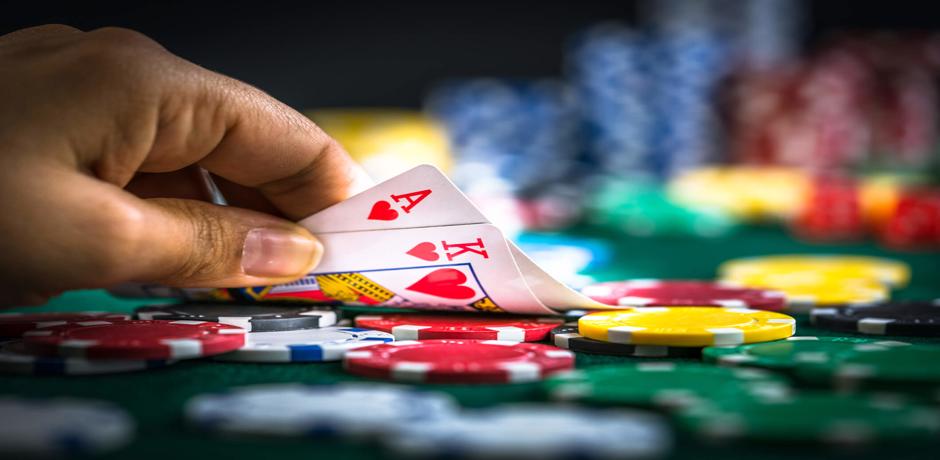
When bets are called two or more bets on a turn by a single player.
If a pot has already been bet and raised before it reaches a player who decides to call, this known as cold calling.
Connector
A connector is a sequential pocket card.
For example, 5 of the clubs and 6 of hearts would be connectors. If the cards in question are of the same suit they would be known as “suited connectors”.
Community cards
The community cards are those dealt face up in the center of the table.
Players use community cards alongside their pocket cards to make the best hand possible.
Counterfeit
A duplicate card on the board that devalues your hand.
For example, if a player has pocket 6’s and the board is A-A-8-4 on the turn, they will become “counterfeited” if the river card is an 8. Although they have two pairs, the community cards give a better hand than what they could make with their pair of 6’s.
In this situation, a player is reduced to a high card in their pocket cards, if an opponent has a card value of 6 or higher, they will win.
Cut-off
The position of the player to the immediate right of the button.
Dealer
The player responsible for the shuffling and the dealing of the cards.
Dealer button
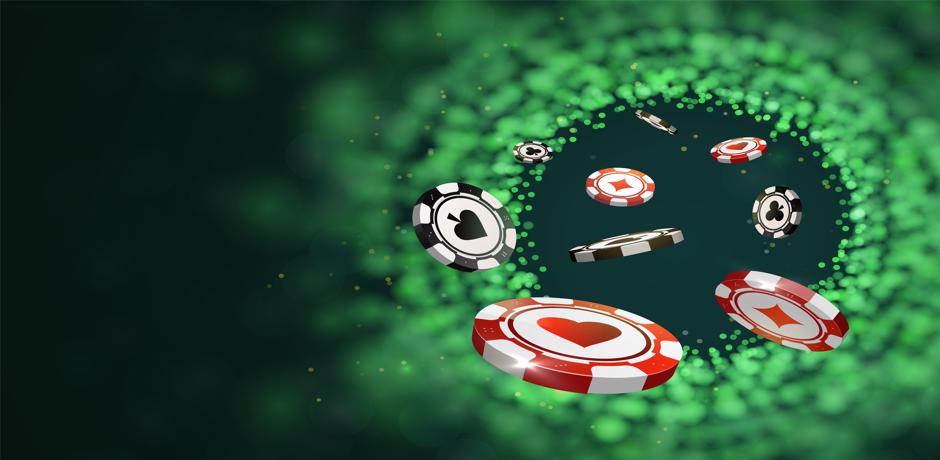
The button (usually a plastic disk in live poker with the “DEALER” tag in live poker) indicating the player in charge. The dealer button is passed around the table clockwise following each hand.
Draw
The act of remaining in a hand in the hopes of improving the value of your cards.
For example, in the situation where a player is one or more cards away from a straight or a flush, a call or raise in a round of betting while waiting for the required cards is known as ‘drawing’.
The most common draws are for a flush draw and a straight draw although it is possible to draw for a three-of-a-kind, a full house or better.
Draw out
For the correct community card to be drawn, transforming a losing hand to a winning hand.
Drawing dead
The act of drawing without the knowledge that there is no winning hand that that can be made.
For example, if a player has two pairs and plans to make a full house following the river and an opponent has already made a four-of-a-kind, it is said that the player drawing is “drawing dead”.
They’re hopeful, but there’s no chance of a win for this hand.
Flop
The flop is the name given to the first three community cards dealt following the first round of betting.
Flush
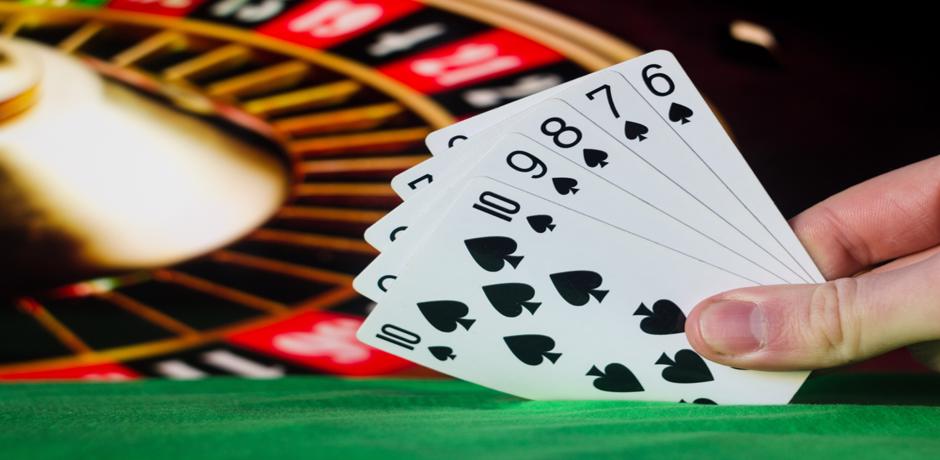
A flush is the name given to a poker hand consisting of five cards of the same suit.
Fold
To give up and opt-out of the betting for a hand, losing any bets that are already in the pot.
A fold is best suited for when a player believes that their hand is too weak compared to the hands of the other players around the table.
Four of a kind
The poker hand consisting of four cards of the same rank, regardless of suit.
Full house
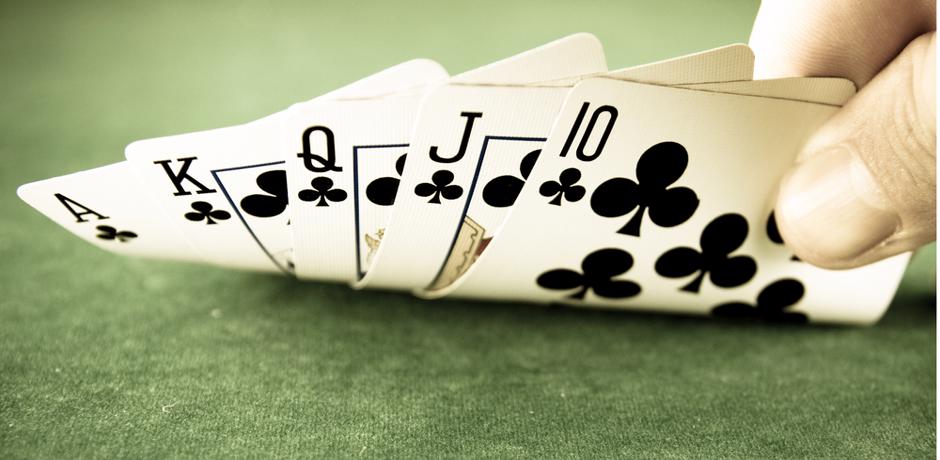
The poker hand consisting of a three-of-a-kind and another, different, pair.
Gutshot
A straight that is completed from “inside” by only a single possible card.
For example, a gutshot can occur when a player has pocket cards of 5-6 and the flop shows 4-8-Q. A 7, and only a 7, is required on either the turn or the river to create a “gutshot” straight.
A gutshot straight is the exact opposite of an open-ended straight and half as likely to occur.
Hand
A hand is a name given to the five cards made up of a player’s pocket cards and the community cards. The better the hand, the more likely a player is of winning the pot.
Heads-up
The name given when only two players are up against each other for the pot.
Implied odds
The act of taking future calls from opponents into consideration when drawing for something.
If a draw is to be successful, players should expect that their opponents will call with their hands. However, these funds are speculative (hence implied) and are not taken as a sure-thing.
Kicker
In the situation in which two players have the same hand in the showdown, the player with the highest kicker will win the pot.
For example, if we see the board of 3-5-5-6-6 and player 1 has pocket cards of A-K and player 2 has pocket cards of K-Q, player 1 will win the pot as they have the highest kicker (A>K). Player 1’s ace is known as the “kicker”, completing a five-card hand alongside the two-pair.
Limp
Slang for calling, it’s “limp” as it’s not an aggressive move.
Limit
A game structure in which bets and raises are capped at a fixed amount.
The opposite of this would be a “no-limit” game.
Muck
The “muck” is where all discarded hands go when folded. The cards are thrown into the “muck”.
No-limit

A game structure in which players are permitted to bet their entire chip stack. Although there may be a minimum, there is no limit (maximum) to the amount which can be bet or raised.
The opposite of this would be a “limit” game.
Nuts
The “nuts” is the best possible hand that can be given at any given moment in the game.
For example, if a player has pocket 7’s and the flop shows a 7-6-2, that player is said to have the “nuts” as the three-of-a-kind 7’s would be the best hand at that moment in time. However, if a 5 is shown on the turn, that player will no longer have the nuts as a player holding an 8-9 would be able to make a straight.
If the river card shows a 7, the “nuts” would be restored with four-of-a-kind 7’s being the best possible hand in the game.
Off-suit
The name given when holding pocket cards of different suits.
Omaha
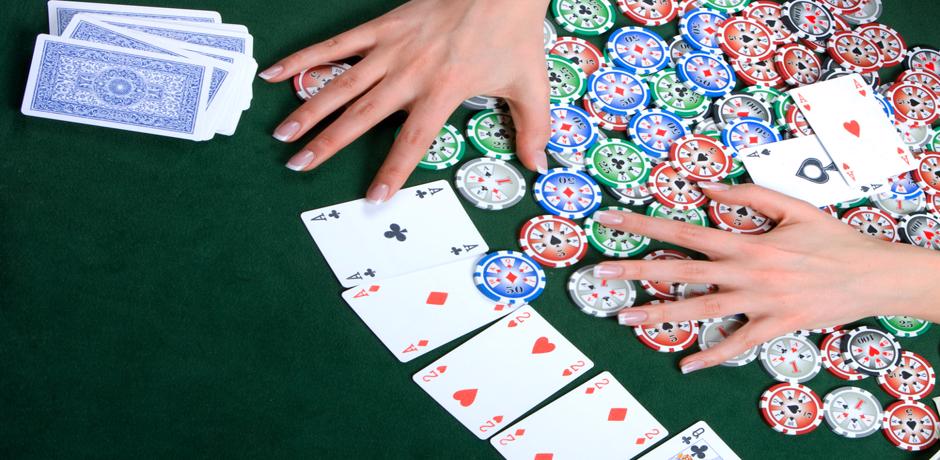
A Texas Hold’Em variety in which players receive a total of 4 hole cards, only using two of them alongside 3 out of the 5 total community cards to make the best possible hand.
Open-handed
A game category characterized by a part of every player’s hand exposed to the rest of the table.
Over-pair
The name given in Hold’Em when a pair of pocket cards is larger than any of the community cards present on the board.
Open-ended
The name given to a straight that is completed from the outside by one of two possible cards.
For example, in the case of a player receiving pocket cards of 5-6 and the flop of 4-7-Q, a player will likely draw for either a 3 or an 8 on the turn or river.
An open-ended straight is twice as likely to hit as a “gutshot” as there are two cards available that can make the straight.
Orbit
Once every player at the table has received the dealer button, this known as a complete orbit.
Out
The name given to a card that works to improve your hand.
In the situation where two players are all-in, player 1 with pocket aces and player 2 with pocket kings, player 2 will need one of the two remaining kings (or “outs”) to win the pot.
Over-cards
The name given for the situation in which a player has higher cards than both the community cards or the opponent’s pocket.
For example, in the situation of a heads-up all-in, the two remaining players will reveal their cards. If player 1 shows a pair of King’s and player 2 shows a pair of Jack’s, the king’s are known as the “over-cards”.
Pair
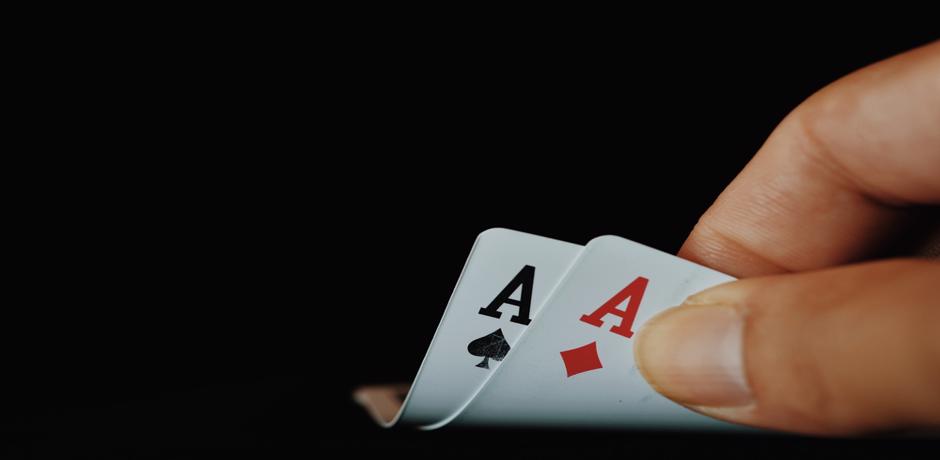
Two cards of the same rank.
Pocket cards
The pocket cards (or hole cards) are those dealt to each player for use alongside the community cards.
Pot-committed
If a player is “pot-committed”, they are likely to be required to call due to the amount they have invested in the pot.
In these situations, there is no sense in folding.
Pot-limit
A game structure in which bets and raises are capped due to the current pot size at any moment.
Pot odds
The ratio of the money in the pot compared to what is required to be called in order to continue playing the hand.
For example, if the pot is a nice and easy round figure, say $100 and an opponent bets $10 (making the pot $110), if a players want to continue the hand and call, it will cost them $10 making the pot odds 11-to-1. If the player believes their odds of the best hand are better than the pot odds, they should call.
Likewise, if a player is waiting on a draw for a better hand and believes the odds to be better than 11-to-1, it is wise to call.
Quads
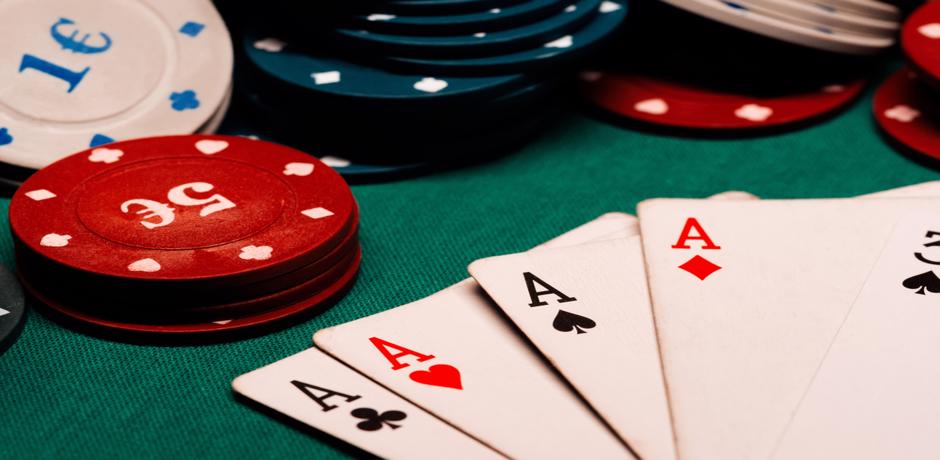
Four of a kind.
Rainbow
A flop in which no two cards are of the same suit e.g. there are 3 different suits, similar to different colors in a rainbow.
Rake
The amount that is taken out of the pot from a poker hand.
Ring game
A standard poker game, characterized by wagers on each and every hand.
River
The full spread of all five community cards on the board.
Rock
Slang for a “tight” player.
A rock is often patient, sitting at the table for multiple orbits without playing for a pot or reaching a showdown. When the player enters the pot, chances are they’ve got the nuts.
Raise
To wager more than the minimum required to continue in the hand (call).
By raising, a player forces their opponents to either fold or put more money into pot.
Royal flush
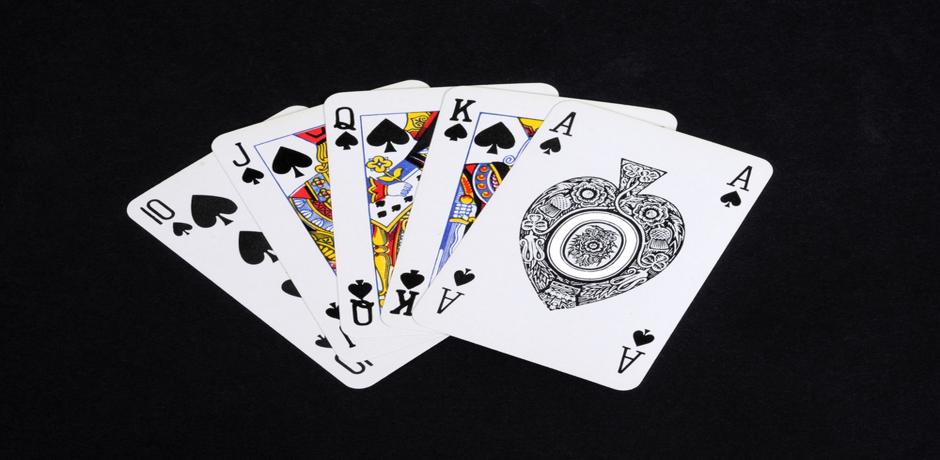
The best possible hand in both a standard game of poker and video poker, an ace-high straight flush (10-J-Q-K-A) of the same suit.
Satellite
The name given to a tournament with smaller buy-in pooling all entrants’ funds and awards seats to higher-value tournaments rather than cash for placing.
Satellites are great for giving players the chance to enter much more expensive tournaments from much smaller buy-in tournaments ($500 vs $10,000).
Semi-bluff
A bluff with a hand that may have the potential following the turn or river cards, improving the hand if the bluff itself is ineffective.
Set
The name given when a pocket pair hits on the board, making the hand a three-of-a-kind.
Short stack
The name given when a player has fewer chips than the rest of opposing players at a table or tournament, the player literally has a short stack of chips.
Showdown
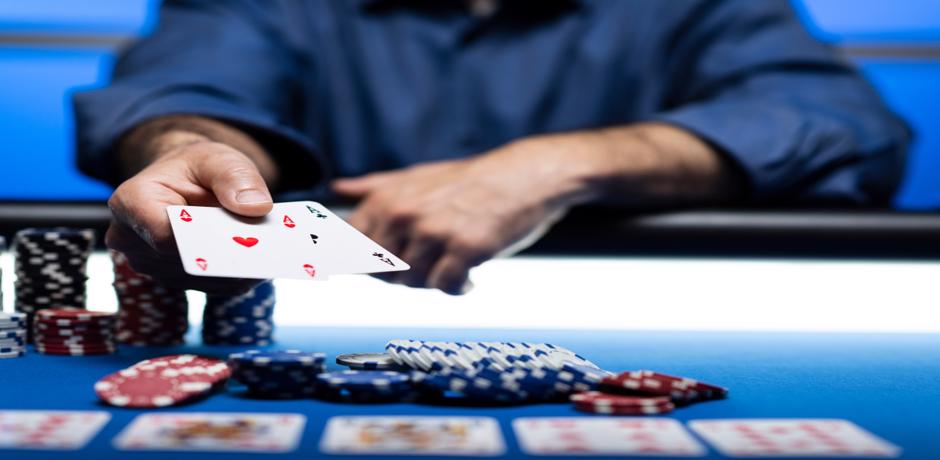
The name given to the situation when the remaining players turn over their cards following the final round of betting.
A showdown is only reached if there are callers in the final round of betting, or, alternatively, if a player is all-in prior to the final betting round.
Side pot
The side pot is the name given to the pot created when there are any additional wagers bet by remaining players when one or more players are all-in.
It is possible for multiple side pots to exist at the same time if there is more than one all-in player. An all-in player is only eligible for winning a pot to which they have contributed.
Sit-and-go
The name given to a tournament in which players take a seat and wait to begin until a predetermined number of players register.
When the magic number of players is reached, the tournament begins.
Slow play
The name given when a player takes their time with their hand in an attempt to generate more interest and value in the pot.
If a player flops a full house, the chances are they won’t be beaten in the hand, but by slow-playing, they may be able to reel in bigger bets to win the pot.
Small blind
The small blind is the smaller of the two blind bets that begin a hand.
The player to the immediate left of the dealer button is required to make the small blind bet.
Split pot
The name of the outcome in the situation where two players have the same hand and the pot is divided equally.
Straddle
The “straddle” is an optional pre-deal bet, often made by the player immediately left of the big blind (under the gun).
The straddle has a value twice that of the big blind and the “straddler” may re-raise when the action comes full orbit. Straddling is not often permitted in a tournament setting.
String bet
A prohibited move in which bets are placed on the table in either staggered or multiple motions.
If suspected of string betting, the dealer will remove the amount added due to the potential reactions of other players giving the “string bettor” an unfair advantage.
Straight
A poker hand consisting of 5 sequential cards, not in suit.
Straight flush
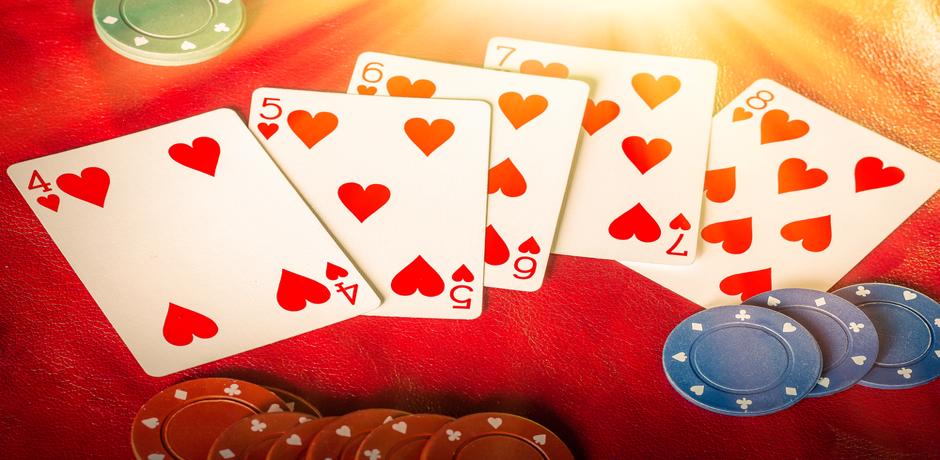
A poker hand consisting of 5 sequential cards in the same suit.
Tell
The name give to the interpretation of physical action or betting pattern that can be used to divulge the quality of hand that an opponent may have.
Tilt
The name given when a player abandons sensible play and begins playing recklessly, often after a bad beat.
Time
The request for more time to think in time-sensitive games to avoid the dealer killing the hand due to inactivity.
Top pair
The name for the hand consisting of a pair with the highest card of the board.
Tournament
A poker event involving multiple tables who begin equally with a fixed number of chips.
Players work to eliminate opponents as the tournament continues, ultimately finishing when one player holds all remaining chips, leaving them with the jackpot. The player’s entry free will usually go into a prize pool with typically the final 10% of players in the money.
Trips
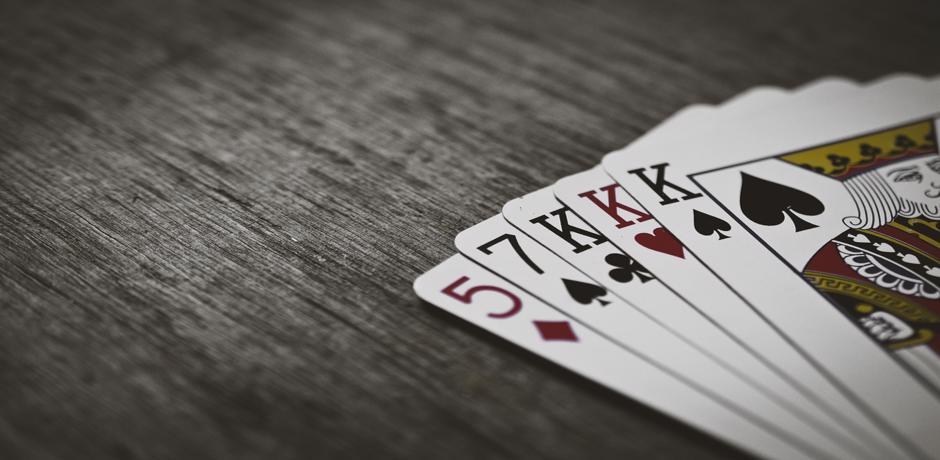
Slang for the hand “three-of-a-kind”.
Turn
The name given to the fourth community card.
Under the gun
The name given to the player sitting in the first-to-act position immediately left of the big blind.

